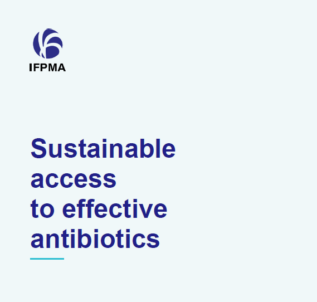WHO EMRO RC71: Promoting collaborative action to accelerate the response to antimicrobial resistance in the Eastern Mediterranean Region
On 16 October 2024 in Doha, Qatar, IFPMA delivered a statement at the 71st session of the WHO EMRO Regional Committee on Promoting collaborative action to accelerate the response to antimicrobial resistance in the Eastern Mediterranean Region.
We appreciate the opportunity to make this statement on behalf of IFPMA. This is a crucial year for advancing action on AMR. Eight years after the first ever AMR high level meeting in 2016, the second one concluded in New York last month. We welcome the ambitious agenda set forth by the UN Member States and stand ready to work with all partners in advancing progress. We further welcome the regional leadership in the form of Saudi Arabia hosting the Fourth Global High-level Ministerial Conference on AMR under the theme of “From Declaration to Implementation” next month, as well as the WISH Summit here in Qatar. We look forward to contributing to both.
We appreciate the focus placed by WHO EMRO on accelerating the response to AMR in the region and underscoring the importance of a sustainable AMR response both in achieving UHC and health security.
We are broadly supportive of the three core strategic priorities and the cross-cutting strategic priority on effective governance and financing, which recognizes the important role of all stakeholders, including the private sector.
While we have seen progress in the fight against AMR over the years, important gaps remain, which the report also recognizes. AMR is already associated with millions of deaths globally and is projected to result in significant economic loss as resistance increases, unless action is taken.
Focus should be given to solutions that can address the antibiotic pipeline and access challenges, which needs to include working with industry. It is critical we recognize the unsustainable economics of antibiotic research and development (R&D) as a core driver of the deteriorating clinical pipeline, which, together with diverse barriers to access, contributes to uneven availability of effective antibiotics.
Well-established and tested solutions are at our disposal in the form of pull incentives to bring about renewed investment and innovation. Recent analysis published by IFPMA suggests that without effective incentives and additional investment the pipeline will continue to decline, and experts and researchers continue to move to more attractive areas of medical R&D – an estimated 50% drop in antibiotic R&D workforce between 1995 and 2020. But, if effective pull incentives are put into place, we could see twice as many antibiotic approvals over the next decade and three times as many projects in clinical development.
However, innovation alone is not enough. In alignment with good stewardship, access to both new and existing antibiotics is key. Improving sustainable access to antibiotics will require a broad set of measures, tailored to the context of each country or region.
Finally, we welcome the inclusion of vaccines in the report and the need to expand immunization programs. Vaccines are some of the most powerful tools for preventing infections and thereby address the root causes of AMR, including by reducing antibiotic consumption.
The innovative pharmaceutical industry remains committed to playing its part and working with stakeholders in accelerating action on AMR.
About IFPMA
IFPMA represents the innovative pharmaceutical industry at the international level, engaging in official relations with the United Nations and multilateral organizations. Our vision is to ensure that scientific progress translates into the next generation of medicines and vaccines that deliver a healthier future for people everywhere.
ifpma.org
To achieve this, we act as a trusted partner, bringing our members' expertise to champion pharmaceutical innovation, drive policy that supports the research, development, and delivery of health technologies, and create sustainable solutions that advance global health.




